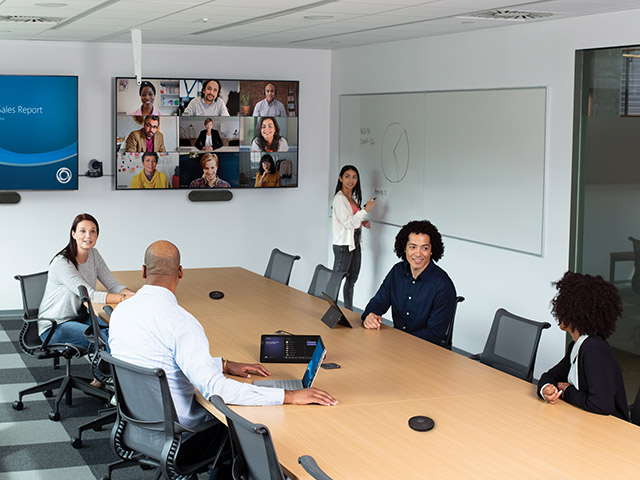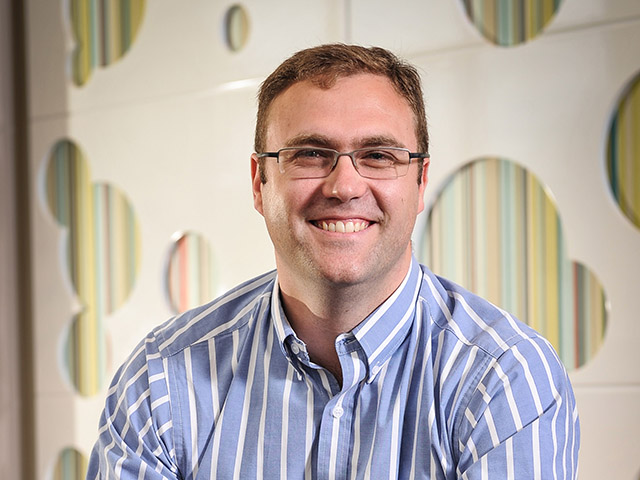Why hybrid work is the next great disruption, and how to prepare for it
By Staff Writer 2 December 2021 | Categories: feature articles
At the Microsoft 365 Summit South Africa: The Future of Hybrid Work Summit held this week, leaders addressed what has become the elephant in the room: how do we adopt hybrid work, with a view to maintaining and enhancing work culture, productivity and well-being?
Top minds from Microsoft, IDC, Adobe, PWC, Ernst & Young and Poly joined the summit yesterday and drilled down into some of the complexities surrounding hybrid work and discussed how companies can accommodate what employees want: the best of both worlds.
“We know that flexibility is important to employees in this new world of hybrid work, but we also see it as key in building resilience and driving growth throughout every business. However, there is no one-size-fits-all approach and this is why we invited leaders to come together to explore this next great disruption and learn from each other,” says Colin Erasmus, Modern Workplace and Security Business Group Lead at Microsoft South Africa.
Speakers at the event agreed that leaders across the public and private sector need to acknowledge the drastic changes that have taken place in the last 18-months and then develop new strategies in order to thrive in the new normal. This means embracing an agile approach to work, deploying innovative tools and technologies, using insights from recent studies to inform future strategies and unlocking news ways of working.

Colin Erasmus
Putting employees front and centre
Many experts and business leaders have come forward with strong opinions on how, when and where people should work in a hybrid world. Studies have made it clear that hybrid is here to stay, but leaders are battling to decide what it should look like.
Ongoing research shows that employees crave more in-person time with their team but wish to keep the flexibility of remote work. This complexity is what Microsoft calls the Hybrid Work Paradox.
For hybrid work to be a sustainable model, employers will need to embrace flexibility, understand and make room for different working styles and foster a culture of trust.
Thought leaders at the summit agreed that success begins when people are placed at the centre. In fact, according to PwC, while COVID-19 triggered the ‘virtual age’ of the working world, we are now entering the ‘personalised age’. This new phase of work is essentially all about maximising convenience and performance, well-being and productivity.
Reimagining the digital experience
According to the IDC, another defining element of the future workplace is the emergence of intelligent digital workspaces. Supported by AI and machine learning, these workspaces should enable a more efficient flow of work. They should augment process execution, providing access to the data, digital and physical and social resources that are required to complete work anywhere.
“A key consideration for a hybrid future is that spaces and places become more important than they were before. Hybrid meetings, for example, are an entirely new kind of meeting that requires rethinking our approach to ensure we’re putting every attendee on equal footing, whether they are in the room or not,” says Erasmus.
Recent innovations in Microsoft Teams Rooms are helping companies have impactful, engaging hybrid meetings where everyone feels included. These include features such as AI-powered active speaker tracking, enabling in-room cameras to use audio, facial movements, and gestures to detect who in the room is speaking. Multiple video streams also allow in-room participants to be placed in their own video pane.
Technology will play a fundamental role in the ability of employers to deliver on the requirements of the ‘personalised age’. Whether employees are in the office or working remotely, the digital employee experience is the new employee experience.
While business leaders have considered their own business practices and working models, employees are also thinking about whether their values are shared by their organisation.
“Meeting employee expectations, not just to attract and to retain talent, but to enable personal well-being, will be a challenge for every leader and every organisation. But if business leaders listen to their employees and customers and incorporate flexibility into everything they do, they can create a better future of work,” concludes Erasmus.
Most Read Articles

Have Your Say
What new tech or developments are you most anticipating this year?



